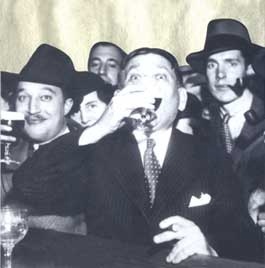In Maclean’s, Kate Lunau talks to Dr. Lance Dodes about Alcoholics Anonymous:
Dr. Lance Dodes has spent more than 35 years treating people who are battling addiction, including alcoholism. In his new book (co-written with Zachary Dodes), The Sober Truth: Debunking the Bad Science Behind 12-Step Programs and the Rehab Industry, Dodes takes a hard look at Alcoholics Anonymous, a worldwide organization that describes itself as a “non-professional fellowship of alcoholics helping other alcoholics get and stay sober.” Today, there are more than 5,000 AA groups in Canada alone, which are free and open to anyone. Dodes, a retired assistant clinical professor of psychiatry at Harvard Medical School, argues that some groups — and many for-profit private rehab centres based on the 12-step model — are often ineffective, and can cause further damage to addicts.
Q: How did you come to work on addiction?
A: I first became involved with alcoholism and addiction in the ’70s, when the place I was working, which is now part of Massachusetts General Hospital in Boston, needed to develop an alcoholism treatment unit. I was director of psychiatry, so I said, “I’ll develop it.” Afterward, I became involved in various addiction treatment programs, including running the state’s largest compulsive-gambling program. Over the years, I became very familiar with AA. It became clear that, while AA works for some people, the statistics just didn’t back it up. The real problem is that [doctors] refer 100 per cent of their patients with alcoholism to AA, and that’s the wrong thing to do 90 per cent of the time.
Q: AA has more than two million members around the world. You say its success rate is between five and 10 per cent. How, then, do you account for its enduring popularity?
A: AA is a proselytizing organization. The 12th step is to go out and spread the word, and they do. Because there are so many people in prominent positions who are members of AA, it gets tremendously good press. If AA were simply harmless, then I would agree that a seven per cent success rate is better than zero. But that’s not the case. It can be very destructive. According to AA, AA never fails — you fail. AA says that if you’re not doing well in the program, then it’s you. So you should go back and do the same thing you did before: Do more of the 12 steps, and go to more meetings.




